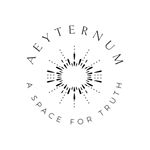Many people are open. They want to share themselves with the expectation that their kindness and vulnerability will be reciprocated with respect, protection, and consideration. It is an endearing but sometimes childish naiveté that attracts those with impure intentions, disregard for personal reasons, or contempt for humanity. What these free spirited beings haven’t learned yet is discernment—they have not learned to be selective with their trust in people.
In the material world, people are not very trustworthy. They do not extend the amount of care and attention an intimate moment or relationship needs in order to thrive. People need to prove themselves as worthy of one’s trust before you allow yourself to be vulnerable with them. Humans are sensitive creatures. We yearn for an honest, affective, and genuine interaction that makes us feel safe enough to confide our fears, dreams, and random thoughts with others. But not everyone follows the same moral code, one that stresses confidentiality and respect for another. As a result, people are hurt and don’t know how to process that pain. They shut down and allow their fear to transform into an unease filled with jadedness and paranoia.
All of that is not to say people can’t be receptive to vulnerability or can’t be open with others. Discernment teaches one how to energetically read a situation and determine its safety level. It is an alarm system ensuring when a situation or person will receive you in a sincere way.
Since childhood, we are naturally open, eager, and trusting of the world. As we grow and mature, we harden, become more dubious and resistant to society. We have valid reasons for doing so—people fail us, our environment fails us, and sometimes our genetics fail us, and we are not taught how to handle that disappointment and pain. I want to stress this again—we are not taught how to handle pain. Although it informs us of our wellness and teaches us about ourselves, we are not equipped with the right knowledge and tools to process pain. When we experience trauma or fear, we initially suppress our intuition, receptivity, and vulnerability. Once we make suppression a habit, we then begin repressing certain emotional responses even further, isolating themselves from our awareness. Suppression and repression are parts of the process that creates our shadows and blockages within our spiritual systems. They help form our pain.
Both acts of pressing parts of ourselves down manifest physically, psychically, and spiritually. Responses such as stress, physical pain around certain pressure points on our bodies, depression, anxiety, and not aptly discerning people and situations are of the many results of suppressing or repressing pain. We lose out on the enjoyment and tranquility of life because of unawareness or reticence to address our pain. Depending on the cause and severity, we can heal ourselves through therapy, life coaching, counseling, or self-healing. Whether addressing it from the viewpoint of the past, present, or future, you focus on providing answers, relief, and an attainable action plan to help heal and overcome your pain, fear, and blockages.
One of those action items is learning and practicing discernment. It is an intrinsic sense of knowing that is developed over time through experience. It is our exposure—our study of past experience, study of current people and examples, and preparation for future encounters—that informs, hones, and strengthens our ability to discern. Most importantly, discernment is symbiotically connected to our self-esteem. When we love ourselves, we protect our happiness through rejecting people attempting to impede, manipulate, and destroy our self-worth.
Self-esteem informs one of deal-breakers: the qualities that disturb one’s peace of mind. As boundaries instruct people on how to properly approach and regard you, deal-breakers teach you about yourself and your level of self-worth. Boundaries and deal-breakers are the external and internal processes of discernment. Deal-breakers include limiting your time and exposure to constant complainers, passive aggressive people, those who take advantage of others with no regard to a person’s time and resources, or people that are violent or involved in illegal activity. They even include energy vampires, narcissistic people, and those who have their own boundary issues. Deal-breakers are meant to enforce and protect your comfort levels as well as your personal development. They are the scaffolding to your boundaries and the power behind your discernment. Not only are they about excluding what diminishes you, but they also inform you about what you do want and who you want around you.
The two sided issue with discernment and deal-breakers is how realistic they are and people’s responses to your boundaries. Although they are effective in helping people protect themselves, boundaries can also encourage an extreme sense of entitlement and superiority. If people don’t meet every single item on your list of criteria, then they are discarded. These very people could be the type that benefit you the most in your journey. One should not use boundaries to seek perfection. There needs to be an allowance for mistakes and learning. As long as people exhibit healthy behaviors, respect, and are compatible with who you are and the person you are maturing into, then they should be the ones allowed into your inner circle. You all can cultivate each other instead of demanding one another to perform in a certain way that coddles, not respects, a person’s boundaries.
The other side of boundaries is people respecting your boundaries. Change is uncomfortable. So when something new is introduced, people immediately want to rebuff, repudiate themselves from the association, fight, disagree, and challenge your boundaries. When the pushback happens, it is a great opportunity to practice stoicism and realize that their reaction isn’t personal. It is projection of their own insecurities and deficiencies, as well as them simply being uneasy and awkward with their new designation in your life.
Remember, you have the right to your boundaries and people have the right to disagree with your boundaries. The distance between them and your boundaries is the allowance for them to eventually accept and respect those boundaries. You don’t have to allow those that eventually understand your boundaries into your space, but you need to acknowledge that they, too, can change, just as you have changed and improved your self-worth. An improvement in a person’s demeanor does not negate their past actions or propensity to repeat an action. It’s a “forgive but don’t forget” approach. You need to discern the type of change people exhibit and the person’s full, genuine capability to respond to your boundaries in high regard. Discernment takes time to develop, but as you work to re-establish yourself, the people meant to be in your life will be illuminated and those not will be noted as such.
Spiritual development of discernment requires faith and grace. It is your faith in the process of gaining discernment that grace will provide a way for you to protect yourself and increase the love you have for yourself. As you work to heal yourself, trust that you have the aptitude to do so. Everyone is whole and competent enough to complete the needed soulwork and posses all the tools they need to to alleviate and eliminate their fear and pain. What most do not realize is that discernment begins within. It is your awareness that you need to heal and change yourself in order to be aligned with a healthier mindset and a more fulfilling life. As you become increasingly in tune with yourself and your needs, you will attract the people and experiences that will empower your growth and will support you along your path.
Boundaries don’t aim to hurt people; they are meant to represent who you are and to teach people how to regard your greatness. ![]()







